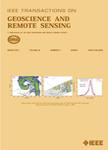版权所有:内蒙古大学图书馆 技术提供:维普资讯• 智图
内蒙古自治区呼和浩特市赛罕区大学西街235号 邮编: 010021

作者机构:Beijing Normal Univ Sch Artificial Intelligence Beijing 100875 Peoples R China
出 版 物:《IEEE TRANSACTIONS ON GEOSCIENCE AND REMOTE SENSING》 (IEEE Trans Geosci Remote Sens)
年 卷 期:2025年第63卷
核心收录:
学科分类:0808[工学-电气工程] 1002[医学-临床医学] 08[工学] 0708[理学-地球物理学] 0816[工学-测绘科学与技术]
基 金:Beijing Natural Science Foundation National Natural Science Foundation of China [62271060, 61571050, 41771407]
主 题:Annotations Object segmentation Semantics Labeling Training Remote sensing Costs Perturbation methods Reliability engineering Data models Object detection pseudo supervision relearning (PSRL) remote sensing image (RSI) processing semantic segmentation weakly supervised learning
摘 要:Weakly annotated object segmentation for remote sensing images (RSIs) has attracted lots of attention due to its low labeling costs. However, annotating a huge amount of multiclass RSIs with image labels is still highly dependent on specific expert knowledge and, thus, requires considerable labeling costs. In this article, intending to further alleviate the labor-intensive labeling costs, we introduce a novel extremely weak annotation condition. In this condition, a substantial portion of samples are unlabeled, while merely a small number of samples are labeled with inexact image-level annotations. To achieve object segmentation under extremely weak annotations, we propose pseudo supervision relearning (PSRL), a novel three-stage framework with the core insight of effectively harnessing the potentially valuable supervision clues stored in abundant unlabeled data. In the first stage, the extremely weak annotations are switched to fine-grained but noisy pseudo supervision with the aid of image-level semantic learning and attention-guided data augmentation. Then, a category-aware dataset resplit strategy based on the masking perturbation mechanism is designed, aiming at adaptively selecting high-quality pixelwise pseudomasks from the artificially generated pseudo supervision and achieving class-balanced reliable-unreliable labels division. Ultimately, we devise a novel dynamic thresholding strategy (DTS)-guided relearning network to take full advantage of the valuable semantic information in the resplit dataset. Experimental results on two public RSI datasets show the effectiveness of the proposed framework. Utilizing less supervised information, the proposed method yields competing results compared to weakly supervised learning-based methods with complete image-level annotations.